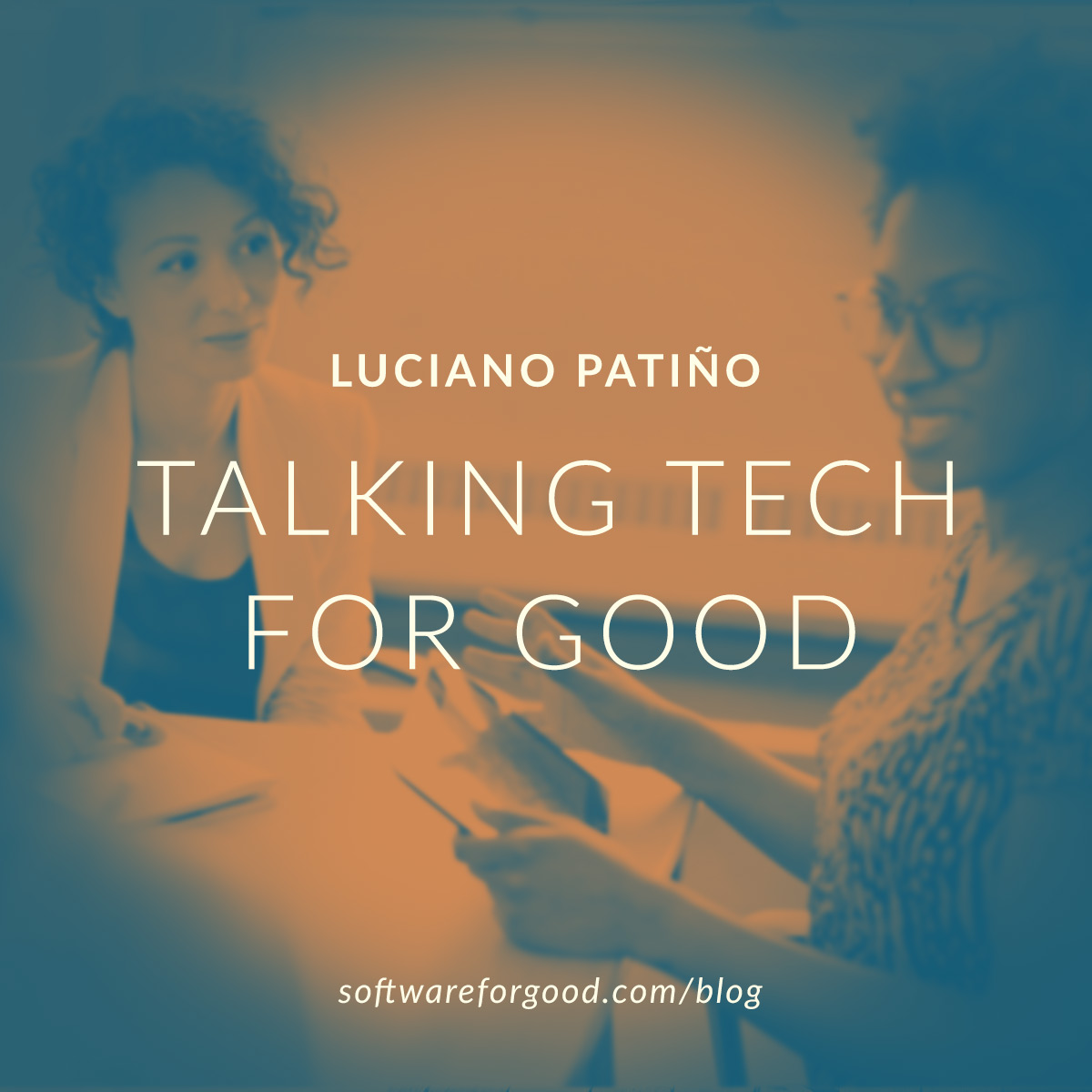At Software for Good, we see how technology can simplify complex processes, communicate important information, and help people work more effectively for social and environmental impact.
In the Talking Tech for Good series, we talk to people who use technology for positive change every day.
Luciano Patiño
Information Technology and Data Manager, Propel Nonprofits
How do you use and/or build technology in your work?
I’m responsible for designing and building Propel Nonprofits‘ database and other IT infrastructure, along with some external partners.
 How does your work pursue or support social good?
How does your work pursue or support social good?
There are many opportunities to support social good as an IT professional. For example, as the person responsible for most of our data, I often help design forms or surveys. How questions are phrased (i.e., using open text boxes for race and gender) can bring people in or make them feel excluded. At Propel, we’re also thinking about how to reach people who don’t have access to smartphones or high speed internet, and letting that influence how we design our website.
How do you define “tech for good”? What makes tech “good”?
I try to use technology in ways that advance equity and justice. My expertise is mostly on the data side, and so I’m always curious about how we can collect and publish data that highlights disparities or shows us how we can better serve black communities, LGBT folks, women, and people with disabilities. Beyond that, I think that IT professionals are uniquely positioned to influence people all over an organization. We use technology more and more throughout our business models, and so we (the geeks) are invited into meetings and projects with all stakeholders, and that affects everything we do.
What interests you about the potential to use technology for positive change? What people or organizations do you see doing this successfully?
Nonprofits have not really leveraged analytics the way for-profit businesses have. There are some great new products, like Einstein for Salesforce, and groups, such as the “Analyze This!” meetup, that can help teach us how to leverage these tools. I’m really excited to learn more and do more with analytics.
What ethical concerns do you have in your work? What ethical principles do you want to see adopted more widely when it comes to tech and/or the work of social good?
I believe the world is becoming automated too quickly. We’re reaping the benefits of robotics, the Internet of Things, self-driving cars, etc, without taking the time to think through how our laws and values have to change accordingly. What does it mean when a self-driving car kills someone? When does the human touch matter in making a product? I hope Steinways are never built by machines, for example. These are some of the things I think about.
Can you describe a time when you witnessed the positive social impact of technology, either through something you built or through tech that made your work easier?
All the time I witness how simplifying processes frees people up. At Propel, we have lots of details, lots of minutiae, that we have to track for legal or reporting purposes. The easier I can make that maintenance, the more time my co-workers have to sip coffee with our clients, or come up with creative financial solutions for an organization in crisis. In the end, social justice work is about relationships. The more I can disconnect people from the tedium of data entry, the more time they have to build deep, meaningful relationships.
What do you wish more people knew about tech, work for social change, or both?
I wish people would see technology, finance, and operations as central to social change. Where we office out of matters. How we bill people matters. The length of a survey or an application matters. We have lots of power to draw people closer or make reaching us hard.
What would be your dream technology aimed at solving a problem in society?
I used to work for the local real estate association, at the multiple listing service. I wish we had a search engine, where foundations could search for programs, and nonprofits could search for funding. As the price for entry, some (OR ALL!!) of the funding would have to be unrestricted, and nonprofits would have to provide some data about communities served and outcomes. It would greatly reduce the administrative burden from nonprofits, and would help foundations expand beyond the group of organizations they already know. Sounds like a win-win to me!

